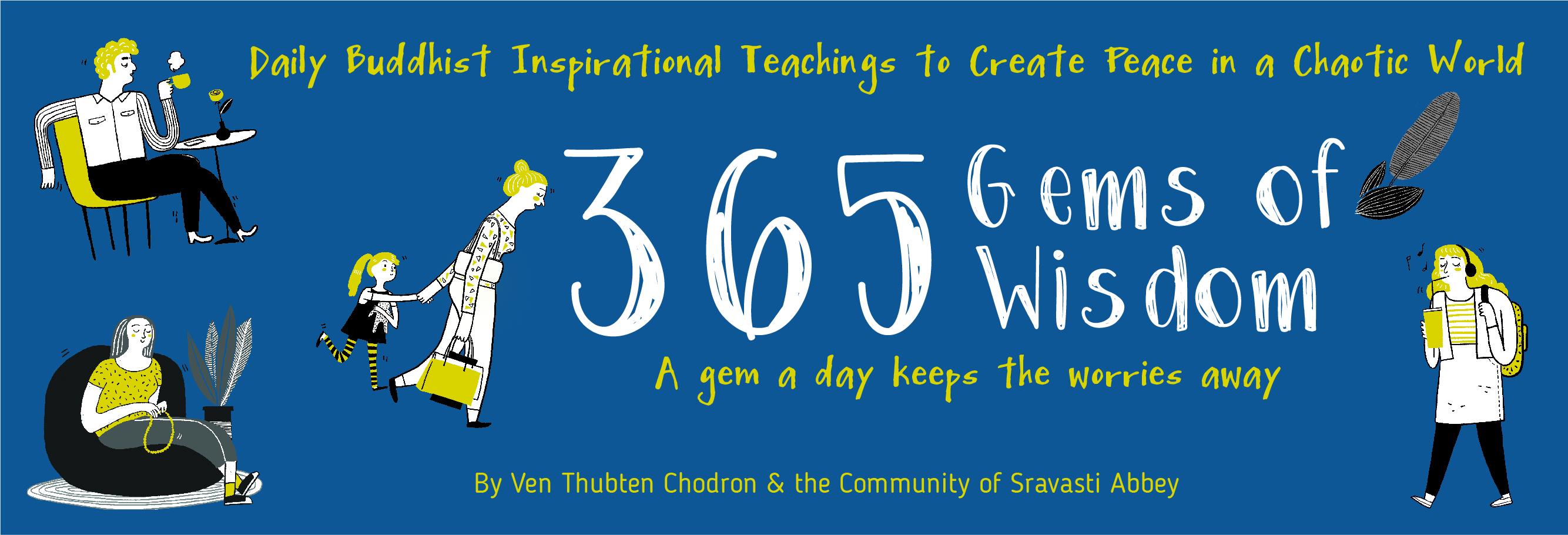February 22 : Training our Mental Muscles
Habitual disturbing emotions are hard to stop through counteractions. Armed with antidotes, the guards of mindfulness and mental alertness destroy disturbing emotions like attachment as soon as they arise. This is the practice of Bodhisattvas.
Habitual disturbing emotions refer to the afflictions, which are very hard to stop unless we are well-practised in the antidotes. Part of our problem at the beginning is that we do not notice the disturbing attitudes, or we do not know which antidote to apply, or we know the antidote but forget to apply it. We have to keep coming back to spirituality as a practice, since we are trying to counteract habitual tendencies that have existed since beginningless time. Results will come if we have a long-term perspective and are willing to put in the energy to change our minds.
Mindfulness and mental alertness are the tools we use to begin chipping away at the habitual disturbing emotions, and they work very well together. Mindfulness means keeping in mind our precepts, values, and the Bodhisattva practices, which makes it much harder for disturbing emotions to arise and intervene because they first have to usurp our attention. Mental alertness is a kind of introspection or vigilance that acts like a spy and checks to see if we are still on the object of mindfulness. If we have gotten distracted, fallen asleep, or negativities have stolen our attention, mental alertness sounds the burglar alarm so we can apply the antidote. Meditating on impermanence and death is an excellent counterforce for attachment, which sees whatever we are craving as permanent.
We can imagine getting whatever we are craving and going through our life year after year to see if it will still make us happy, especially when we are dying. For anger, irritation or hatred, it is helpful to meditate on patience, which is the ability to remain calm in the face of suffering or harm. Patience can prevent us from compounding our misery by getting angry because we are suffering, then feeling guilty because we are angry, then feeling depressed because we are guilty.
When we are jealous, rejoicing at someone else’s good qualities, happiness and fortune is the last thing we want to do, but sometimes we have to deal with our minds like a kicking and screaming child. One antidote for arrogance, conceit and pride is meditating on things that are difficult to understand, like the twelve sources and the eighteen elements. Another is reflecting on the fact that everything we know is due to the kindness of others who taught them to us. All our talents, skills and abilities came our way dependent on other sentient beings, so there is really nothing that is just ours. If we have a good understanding of the lack of true existence, emptiness is a good antidote for all the disturbing emotions. Applying the antidotes is a bit like training our muscles for an athletic event — they are weak at first but get stronger if we keep practising with patience and consistency and do not get discouraged.
“365 Gems of Wisdom” First Volume (January — March) e-book is out now!

